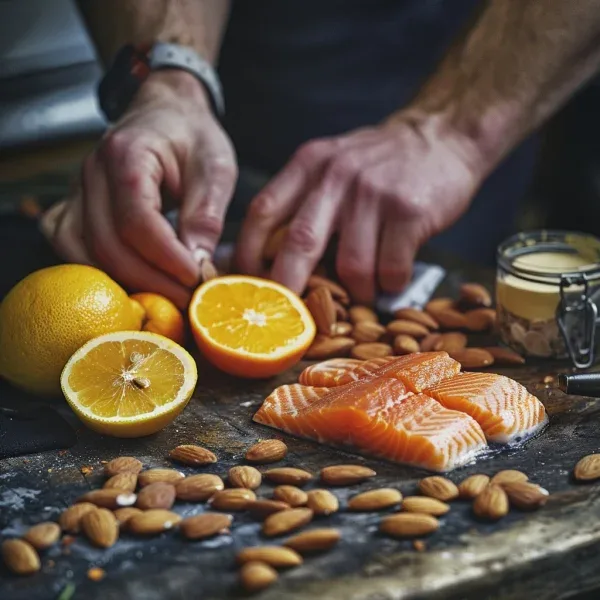by Sofia Moreau

Savoring those late-night snacks as a child was pure, unadulterated joy! Modern science now shows that there’s a lot more to munchies than just the wow factor. If you’re aiming to bolster your workout recovery and optimize your overall performance, your diet and sleep patterns hold the key. They’re the power twins that breathe life into your aspirations.
We’ve all felt the sting of a sleepless night. It makes us prone to distractions and reduces our resolve for maintaining a proper diet. The opposite is also true. A caffeine-frenzied day or a sugar-coated episodic binge can disrupt your sleep. Yes, they’re inter-dependent phenomena.
Sound sleep coupled with optimal intake of required nutrients, vitamins and minerals can supercharge your body’s performance. That being said, let’s shed some light on how certain foods affect our sleep and aid in recovery post workout.
Start with the universally accepted wisdom – a balanced diet. It’s crucial to figure out what works best for your body instead of jumping on the bandwagon of the latest diet sensation or health food novelty.
The worlds of nutrition and sleep are vast, backed by an extensive field of scientific research. While a panacea is not the answer, some food elements are known to aid sleep and recovery.
Essential Nutrients
If you’re unsure about the presence of essential nutrients such as Vitamins A, C, D, E, K, and vital minerals like calcium and magnesium in your diet, consider consulting a nutritionist or opting for a blood test.
Carbohydrates
For those involved in performance exercise, complex carbohydrates should be an integral part of the diet. Key sources include brown pasta, pulses, legumes, and vegetables. Timing is paramount – refrain from a carb-loaded meal right before bed, and swap sugary drinks for healthier options.
Alcohol
Alcohol might make you slide into slumber, but it greatly reduces the sleep quality and impairs your ability to perform the next day due to dehydration and respiratory issues.
The ‘Superfood’ Misnomer
The term ‘superfood’ is essentially a marketing gimmick. Each food has its unique properties. For instance, natural ingredients like turmeric, chamomile, and almonds can have a transformative influence on your body’s health. Turmeric, for instance, has potent anti-inflammatory effects that aid in recovery.
Remember, the trick to successful workout recovery is an individualized approach to diet and lifestyle. Instead of blindly following fads, listen to your body. Keeping a journal and noting how you feel or sleep after consuming specific foods can provide key insights into determining what works best for you. So here’s to better health and sound sleep!
For deeper insights about functional health, stay tuned to this space.
workout recovery, sleep patterns, nutrition, sleep and diet, balanced diet, nutrition and performance, health trends, effect of food on sleep, turmeric and recovery, functional health, superfood myth
Leave a Reply